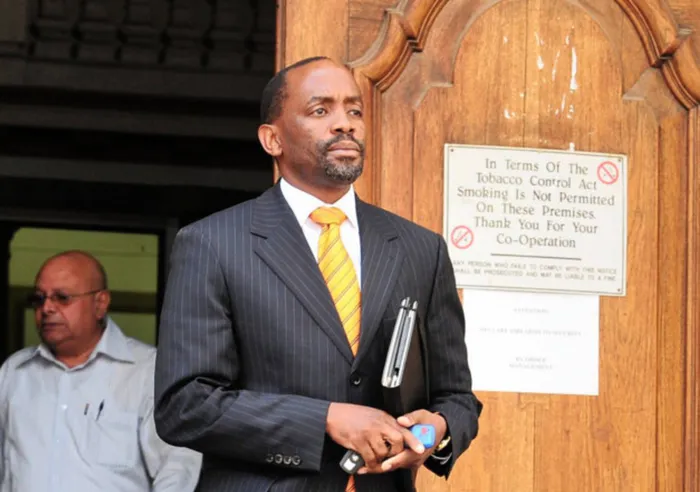Spotlight on NPA decisions

National Director of Public Prosecutions Menzi Simelane. Photo: Boxer Ngwenya National Director of Public Prosecutions Menzi Simelane. Photo: Boxer Ngwenya
The Constitutional Court will have to rule on the validity of all the prosecutorial decisions taken by National Director of Public Prosecutions Menzi Simelane during a tenure that has been ruled invalid by the Supreme Court of Appeal (SCA), says the justice ministry.
On Thursday, ministry spokesman Tlali Tlali said the government had reserved its right to challenge the SCA’s decision in the Constitutional Court.
In a move that has been widely welcomed, the SCA set aside President Jacob Zuma’s appointment of Simelane on Thursday.
Delivering a unanimous ruling in Bloemfontein, Judge Mahomed Navsa said the appointment was unconstitutional and therefore invalid.
Judge Navsa said Justice Minister Jeff Radebe and Zuma had “made material errors of fact and law in the process leading up to the appointment of Mr Simelane”.
“This speaks to both rationality and legality.”
Among the reasons for the ruling was that they had chosen to ignore the questions about Simelane’s character contained in a report by former National Assembly Speaker Frene Ginwala after an inquiry she headed.
Former prosecutions boss Vusi Pikoli was the subject of the Ginwala Inquiry, appointed by then president Thabo Mbeki to examine whether he was fit to hold the post.
Mbeki had suspended Pikoli when he refused to hold off on the arrest of then police commissioner Jackie Selebi.
Simelane led the government team setting out grounds for Pikoli’s unfitness.
Ginwala made damning comments in her report about Simelane, who was director-general of the Justice Department at the time. She said Simelane’s conduct during the inquiry “left much to be desired”.
“His testimony was contradictory and without basis in fact or in law,” the report said.
Pikoli, on the other hand, was found to be a fit and proper person for the post.
However, Pikoli was replaced by Simelane, after the former reached a settlement with the government in which he was paid R7.5 million after a bid to be reinstated.
On Thursday, Pikoli’s then attorney, Aslam Moosajee, said the SCA’s ruling vindicated the principles that Pikoli valiantly fought for in the face of political pressure.
Approached for comment, Pikoli declined, saying it would be “inappropriate as the judgment involves me”.
“Look, I’m enjoying my rest. I’ve moved on with my life. I’m happy it (the controversy) has been out of the news. I seriously don’t want to comment on the judgment. The matter has been dealt with... I’ve left the National Prosecuting Authority,” Pikoli said.
He said he had only become aware of the judgment when journalists began calling him on Thursday morning after the news broke.
“I didn’t know. The SABC called me and some others and said: ‘Hey, have you heard?’.”
He would not discuss the judgment, the implications for the NPA, Simelane, and Zuma (who had appointed him on the advice of Radebe), the national and political significance or the drawn-out political battle that led to him finally entering a settlement agreement with the government in November 2009.
When asked if he thought the judgment had vindicated him, Pikoli roared with laughter.
Moosajee, an attorney with the firm Norton Rose South Africa, who represented Pikoli during the two-year legal battle, said: “We didn’t need this judgment to be vindicated because Mr Pikoli was vindicated some time ago, with the settlement.”
He said that despite the legal action he had taken against the department – which had dragged on for more than two years – Pikoli’s “passion to carry out his duties without fear or favour persisted”.
The period following Pikoli’s suspension and subsequent dismissal, which culminated in the settlement agreement, was a “trying time for Mr Pikoli”.
However, there was never “any doubt that he would be vindicated”, Moosajee said.
The judgment vindicated the “principles Pikoli stood for and fought so hard for”, he added.
He said the principles included prosecuting independently and that removing the NDPP must be done by the book.
“It’s not just a judgment about Pikoli. It’s important for our democracy because it sets out very clear terms on the important role the president of the country has in appointing the NDPP, and provides guidelines in making the appointment.
“It’s not simply about Pikoli,” Moosajee said. - Political Bureau